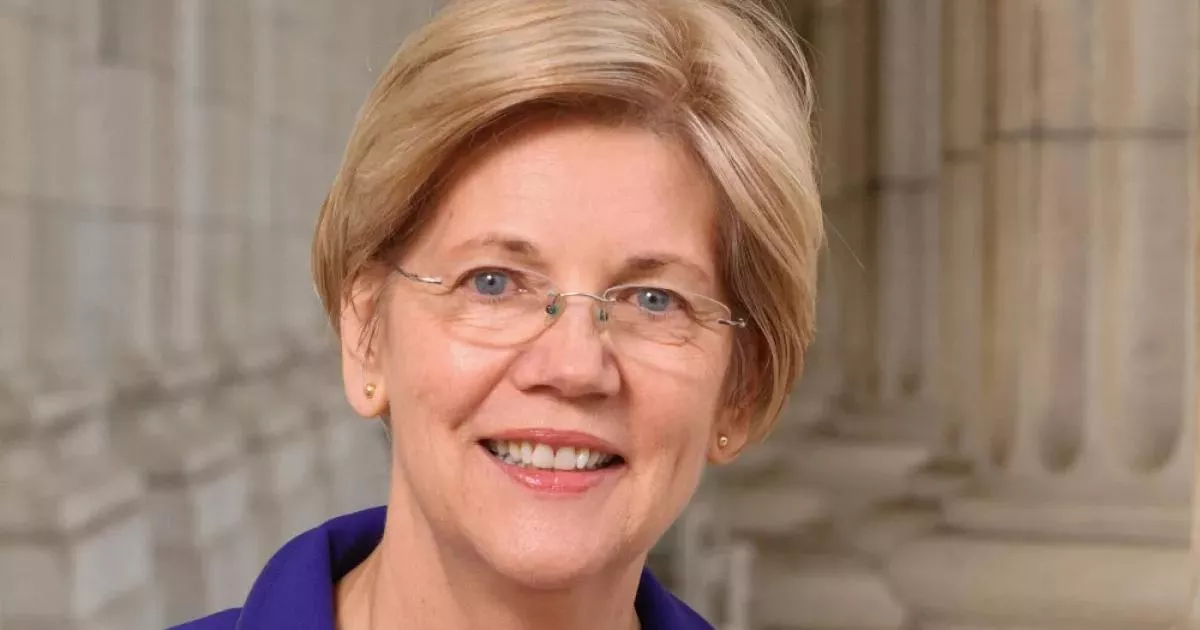How Elizabeth Warren built a successful career. Explore key moments that defined the journey.
Elizabeth Warren is a prominent American politician and the senior U.S. Senator from Massachusetts since 2013. As a Democrat known for her progressive views, she champions consumer protection, economic equality, and social welfare programs. Warren gained national attention as a 2020 presidential candidate, where she advocated for significant reforms. Before entering politics, she was a distinguished law professor specializing in bankruptcy. Her policy proposals and advocacy have positioned her as a leading voice in contemporary American political discourse, particularly on issues of economic fairness and corporate accountability.
1970: Taught Children with Disabilities
In 1970, after obtaining her degree but before enrolling in law school, Elizabeth Warren taught children with disabilities for a year in a public school.
1977: Lecturer at Rutgers
In 1977, Elizabeth Warren began her career in academia as a lecturer at Rutgers University, Newark School of Law.
1978: Moved to University of Houston Law Center
In 1978, Elizabeth Warren moved to the University of Houston Law Center.
1980: Associate Dean at University of Houston
In 1980, Elizabeth Warren became an associate dean at the University of Houston Law Center.
1980: Published Article on Public Utilities
In 1980, Elizabeth Warren published an article in the Notre Dame Law Review arguing that public utilities were over-regulated and that automatic utility rate increases should be instituted.
1983: University of Texas School of Law Professor
In 1983, Elizabeth Warren returned to the University of Texas School of Law as a full professor after being a visiting associate professor in 1981.
1985: Visiting Professor at University of Michigan
In 1985, Elizabeth Warren was a visiting professor at the University of Michigan.
1987: End of UT Austin Position
In 1987, Elizabeth Warren concluded her time as a research associate at the Population Research Center of the University of Texas at Austin and as a professor at the University of Texas School of Law.
1987: Joined University of Pennsylvania Law School
In 1987, Elizabeth Warren joined the University of Pennsylvania Law School as a full professor.
1989: Published 'As We Forgive Our Debtors'
In 1989, Elizabeth Warren, along with colleagues Teresa A. Sullivan and Jay Westbrook, published their research in the book "As We Forgive Our Debtors."
1990: Obtained Endowed Chair
In 1990, Elizabeth Warren obtained an endowed chair at the University of Pennsylvania Law School, becoming the William A. Schnader Professor of Commercial Law.
1992: Visiting Professor at Harvard Law School
In 1992, Elizabeth Warren taught for a year at Harvard Law School as the Robert Braucher Visiting Professor of Commercial Law.
1995: Harvard Law School lists Warren as Native American
From 1995 to 2004, Elizabeth Warren's employer, Harvard Law School, listed her as a Native American in its federal affirmative action forms; Warren later said she was unaware of this.
1995: Public Policy Involvement
In 1995, Elizabeth Warren began her involvement in public policy by working to oppose what eventually became the 2005 act restricting bankruptcy access for individuals.
1995: Professor at Harvard Law School
In 1995, Elizabeth Warren left the University of Pennsylvania to become the Leo Gottlieb Professor of Law at Harvard Law School.
1995: Advisor to National Bankruptcy Review Commission
In 1995, Elizabeth Warren was asked to advise the National Bankruptcy Review Commission by its chair, former congressman Mike Synar.
1996: Highest-Paid Professor at Harvard
In 1996, Elizabeth Warren became the highest-paid professor at Harvard University who was not an administrator.
2004: Harvard Law School lists Warren as Native American
From 1995 to 2004, Elizabeth Warren's employer, Harvard Law School, listed her as a Native American in its federal affirmative action forms; Warren later said she was unaware of this.
2004: Publication of 'The Two-Income Trap'
In 2004, Elizabeth Warren and her daughter, Amelia Tyagi, wrote 'The Two-Income Trap: Why Middle-Class Mothers and Fathers Are Going Broke,' examining the financial struggles of middle-class families.
2004: Appearance on Dr. Phil Show
In 2004, Elizabeth Warren began to rise in prominence with an appearance on the Dr. Phil show, and published several books including The Two-Income Trap.
2004: Article in Washington University Law Review
In 2004, Elizabeth Warren published an article in the Washington University Law Review arguing that correlating middle-class struggles with over-consumption was a fallacy.
2005: Most-Cited Scholars
From 2005 to 2009, Elizabeth Warren was among the three most-cited scholars in the fields of bankruptcy and commercial law.
2005: Study on bankruptcy and medical bills
In 2005, Elizabeth Warren and David Himmelstein published a study on bankruptcy and medical bills, finding that half of all families filing for bankruptcy did so after a serious medical problem, with three-quarters having medical insurance.
2006: Member of FDIC Advisory Committee
From 2006 to 2010, Elizabeth Warren was a member of the FDIC (Federal Deposit Insurance Corporation) Advisory Committee on Economic Inclusion.
November 14, 2008: Appointed Chair of Congressional Oversight Panel
On November 14, 2008, Elizabeth Warren was appointed by U.S. Senate majority leader Harry Reid to chair the five-member Congressional Oversight Panel created to oversee the implementation of the Emergency Economic Stabilization Act.
2008: Economic backlash to financial crisis
Brian Stelter agreed with Green's analysis that Warren helped lead an economic backlash to the 2008 financial crisis that pulled the Democratic party leftward.
2008: Critical of the Obama administration's response to the 2008 financial crisis
Elizabeth Warren had been critical of the Obama administration's response to the 2008 financial crisis.
2008: Advocacy for Banking Regulations
In 2008, Elizabeth Warren's national profile grew due to her strong public stances in favor of stricter banking regulations after the 2008 financial crisis.
2009: Most-Cited Scholars
From 2005 to 2009, Elizabeth Warren was among the three most-cited scholars in the fields of bankruptcy and commercial law.
July 2010: CFPB Established by Dodd-Frank Act
In July 2010, the Consumer Financial Protection Bureau (CFPB) was established by the Dodd–Frank Wall Street Reform and Consumer Protection Act, which was signed into law by President Obama.
September 2010: Named Special Advisor for CFPB
In September 2010, President Obama named Elizabeth Warren Assistant to the President and Special Advisor to the Secretary of the Treasury on the CFPB to set up the new agency.
2010: Member of FDIC Advisory Committee
From 2006 to 2010, Elizabeth Warren was a member of the FDIC (Federal Deposit Insurance Corporation) Advisory Committee on Economic Inclusion.
September 14, 2011: Declared Senate Candidacy
On September 14, 2011, Elizabeth Warren declared her intention to run for the Democratic nomination for the 2012 election in Massachusetts for the U.S. Senate.
2011: Harvard's Only Tenured Public Law School Professor
As of 2011, Elizabeth Warren was Harvard's only tenured law professor who had attended law school at an American public university.
2011: Impetus for CFPB Establishment
In 2011, Elizabeth Warren's scholarship and public advocacy were the impetus for establishing the Consumer Financial Protection Bureau.
January 2012: Cordray Appointed to CFPB
In January 2012, President Obama appointed former Ohio attorney general Richard Cordray as the director of the CFPB in a recess appointment, due to concerns that Elizabeth Warren could not win Senate confirmation.
2012: Scott Brown speculates Warren fabricated Native ancestry
During Elizabeth Warren's first Senate race in 2012, her opponent, Scott Brown, speculated that she had fabricated Native ancestry to gain an advantage in the employment market and used Warren's ancestry in several attack ads.
2012: Campaign for US Senate
In 2012, Elizabeth Warren campaigned for the U.S. Senate in Massachusetts.
2012: Elected as U.S. Senator
In 2012, Elizabeth Warren defeated incumbent Republican Scott Brown and became the first female U.S. senator from Massachusetts.
2012: Warren's 2012 Senate Campaign
In 2012, Michelle Wu, who later became the mayor of Boston, worked on Elizabeth Warren's Senate campaign. Steven W. Tompkins, who later became the Suffolk County Sheriff, also started his political career working on Warren's 2012 campaign.
2013: Became U.S. Senator
In 2013, Elizabeth Warren became the senior United States Senator from the state of Massachusetts.
2013: Michelle Wu runs for Boston City Council
In 2013, Michelle Wu, a former law student of Elizabeth Warren and campaign worker for Warren's 2012 Senate campaign, ran for Boston City Council.
April 2014: Publication of 'A Fighting Chance'
In April 2014, Metropolitan Books published Elizabeth Warren's book 'A Fighting Chance', which reflects on the decline of the American dream for middle-class families.
2016: Warren seen as leading figure in the Democratic Party
After the 2016 election of Donald Trump, many commenters saw Warren as one of the de facto leading figures in a national Democratic Party that lacked a clear singular post-Obama leader.
2016: Pressuring Clinton on potential appointees
In 2016, Elizabeth Warren continued her efforts to pressure Hillary Clinton on potential appointees, aiming to prevent Wall Street-friendly individuals from being appointed to her administration.
2016: Effort to shape Hillary Clinton's administration
In 2016, Elizabeth Warren engaged in an effort to shape the administration Hillary Clinton would lead if she won the election, quietly working to influence how Clinton might staff an administration, as described in Stern's 2024 book.
2016: Influence on Hillary Clinton
In 2016, Elizabeth Warren influenced 2016 Democratic nominee Hillary Clinton on the matter of staffing presidential administrations.
2016: Foreign government attacked election
In April 2019, after reading the Mueller report, Elizabeth Warren called on the House of Representatives to begin impeachment proceedings against Donald Trump, asserting that he welcomed help from a hostile foreign government during the 2016 election and obstructed the investigation into that attack.
January 2017: Presidential Conflicts of Interest Act read in the Senate
In January 2017, the Presidential Conflicts of Interest Act, written by Elizabeth Warren, was first read in the Senate.
April 2017: Publication of 'This Fight Is Our Fight'
In April 2017, Elizabeth Warren published her 11th book, 'This Fight Is Our Fight: The Battle to Save America's Middle Class', addressing the plight of the American middle class.
2018: Boston Globe investigates Warren's claim to Native American ethnicity
A 2018 Boston Globe investigation found that Elizabeth Warren's reported ethnicity played no role in her rise in the academic legal profession.
2018: Warren calls for abolishing ICE
In 2018, Elizabeth Warren called for abolishing U.S. Immigration and Customs Enforcement (ICE) due to her criticism of Trump's immigration policies.
2018: Re-elected as U.S. Senator
In 2018, Elizabeth Warren was reelected as a U.S. Senator, defeating Republican nominee Geoff Diehl.
January 2019: Warren criticizes Trump's decision to withdraw troops from Syria and Afghanistan
In January 2019, Elizabeth Warren criticized Trump's decision to withdraw U.S. troops from Syria and Afghanistan, arguing that such withdrawals should be part of a coordinated plan with U.S. allies.
February 9, 2019: Announced Presidential Candidacy
On February 9, 2019, Elizabeth Warren announced her candidacy in the 2020 United States presidential election.
February 2019: Warren visits Native American conference
In February 2019, Elizabeth Warren received a standing ovation during a surprise visit to a Native American conference, where she was introduced by Representative Deb Haaland.
April 2019: Warren calls for impeachment proceedings against Trump
In April 2019, after reading the Mueller report, Elizabeth Warren called on the House of Representatives to begin impeachment proceedings against Donald Trump, asserting that he welcomed help from a hostile foreign government during the 2016 election and obstructed the investigation into that attack.
July 2019: Haaland endorses Warren for president
In July 2019, Representative Deb Haaland endorsed Elizabeth Warren for president, calling her "a great partner for Indian Country".
2019: Alex Thompson reports on Warren's efforts
In 2019, Alex Thompson reported in Politico on Elizabeth Warren's efforts ahead of the 2016 election to pressure Hillary Clinton on potential appointees.
2019: Supports federal moratorium on CAFO construction
In 2019, Elizabeth Warren expressed her support for a federal moratorium on Concentrated Animal Feeding Operations (CAFO) construction and expansion.
March 5, 2020: Withdrew from Presidential Race
On March 5, 2020, after Super Tuesday, Elizabeth Warren withdrew from the 2020 United States presidential election.
August 11, 2020: Kamala Harris announced as Biden's running mate
On August 11, 2020, Kamala Harris was officially announced as Joe Biden's running mate for the upcoming presidential election.
2020: 2020 Presidential Campaign
In 2020, Elizabeth Warren was a candidate in the Democratic Party presidential primaries, finishing third after Joe Biden and Bernie Sanders.
February 2021: Biden administration more receptive to Warren's input
In February 2021, Jeff Bridgood observed that the Biden administration appeared more receptive to Elizabeth Warren's input than the Obama administration had been, reflecting how the party had become more in line with her political philosophy.
March 2021: Influence on Biden's personnel decisions
In March 2021, it was reported that Elizabeth Warren has been a private but constant voice to the Biden administration on personnel decisions. Around that time, Zachary Warmbrodt of Politico noted her influence.
June 24, 2022: Warren requests Biden to unblock resources for reproductive health
After the June 24, 2022, Supreme Court ruling overturning Roe v. Wade, Elizabeth Warren wrote a New York Times op-ed requesting that President Biden unblock critical resources and authority that states and the federal government can use to meet the surge in demand for reproductive health services.
2022: Warren votes for the Respect for Marriage Act
In 2022, Elizabeth Warren voted to advance legislation to codify same-sex marriage into federal law by voting for the Respect for Marriage Act.
March 13, 2023: Warren presents analysis of Silicon Valley Bank collapse in The New York Times
On March 13, 2023, Elizabeth Warren presented a detailed analysis of the collapse of Silicon Valley Bank on March 10, 2023, and provided possible solutions to avoid further bank failures, in The New York Times.
March 2024: Warren urges US recognition of Palestinian state
In March 2024, Elizabeth Warren was one of 19 Democratic senators to sign a letter to the Biden administration urging the U.S. to recognize a "nonmilitarized" Palestinian state after the war in Gaza.
2024: Re-elected to Senate
In 2024, Elizabeth Warren was reelected to a third Senate term against Republican nominee John Deaton.
2024: Stern's book
In 2024, Stern released a book which mentioned Warren's efforts in 2016 to shape the administration Hillary Clinton would lead if she won the election.
2024: Warren is shaping the Democratic Party
In his 2024 book The Rebels: Elizabeth Warren, Bernie Sanders, Alexandria Ocasio-Cortez, and the Struggle for a New American Politics, Joshua Green cites Warren as a major figure in shaping the Democratic Party's embrace of more leftward politics in the dozen years after the Great Recession.

2040: Phase out existing CAFO operations
In 2019, Elizabeth Warren cosponsored a bill to phase out existing Concentrated Animal Feeding Operations (CAFO) by 2040.
Mentioned in this timeline

Donald John Trump is an American politician media personality and...

Bernie Sanders is a prominent American politician currently serving as...

Bill Clinton the nd U S President - served as...

Barack Obama the th U S President - was the...

Alexandria Ocasio-Cortez AOC is a prominent American politician and activist...

Hillary Diane Rodham Clinton is a prominent American politician lawyer...
Trending

56 minutes ago Gervonta Davis targeted for world title fight amidst controversy and hit list mentions.

56 minutes ago Terence Crawford's son triumphs, securing Nebraska state wrestling title: A proud moment.

4 months ago Pacquiao hints at Mayweather Rematch, Talks Underway for a Spring Bout

2 hours ago Jaden Ivey sidelined for weeks with knee soreness; Bulls confident on recovery.

2 hours ago Shaq Reveals Phil Jackson's Motivation Tactics; ESPN Changes 'Inside the NBA' Lineup.

2 hours ago AJ Dybantsa: Potential $100 Million NBA Prospect, 2026 Mock Draft Predictions Emerge
Popular

Jesse Jackson is an American civil rights activist politician and...

Barack Obama the th U S President - was the...

Bernie Sanders is a prominent American politician currently serving as...

Ken Paxton is an American politician and lawyer serving as...

Michael Joseph Jackson the King of Pop was a highly...
WWE Raw a professional wrestling television program by WWE airs...





